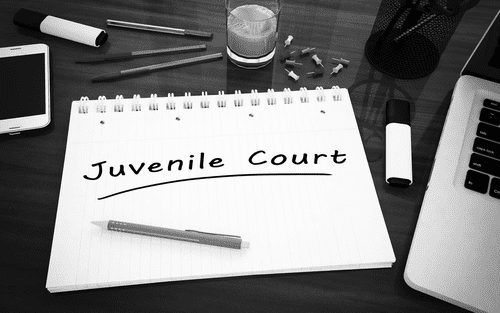A juvenile delinquent? You think, “that cannot be right,” as snippets of the show “Beyond Scared Straight” roll through your mind. Well, thankfully for you, your child is not like the children depicted on that show…at least not yet. You are, however, now the proud parent of a juvenile delinquent. But just breathe; you don’t need to sign them up for boot camp just yet.
During one of the most frustrating and confusing times of your child’s life, here is a brief outline of what you need to know:
The Basics
A delinquent child is a child who commits a delinquent act. According to the Uniform Juvenile Court Act, a delinquent act by a child is conduct by a juvenile that, if committed by an adult, would be in violation of a criminal law (like misdemeanors and felonies). The word delinquent is used for juveniles instead of criminals; this is to avoid any stigma.
Perhaps instead of committing a delinquent act, your child is always skipping school, or doesn’t listen to parents or guardians, etc. You are now the proud parent of an “unruly child.” Put plainly, an unruly child is one who is beyond parental control and refuses to obey legitimate authorities, including school officials and teachers.
Like the vocabulary used, juvenile court is vastly different from adult court. The purpose of juvenile court is to focus on the best interests of the child. Juvenile court is geared towards treatment and rehabilitation, not punishment. At the completion of Juvenile court the child will receive a disposition. A disposition is similar to a “sentence” in adult court, however, again the disposition will be aimed at treatment/rehabilitation and not punishment of the child.
The Process
If you find your child in juvenile court, it will be handled through 1 of 2 different methods.
The first is informal adjustment. A case that is handled informally is called an informal adjustment. The juvenile court officer, the child, and the child’s parents or guardians meet without any judges. The child and the parents have a conversation with the juvenile court officer about the facts of the case and the possible disposition. The juvenile court officer explains the allegation or the reason for the referral (i.e., delinquent act or unruly child).
At this time, your child will be asked to “admit” or “deny” the act; they will not be asked to plead “guilty” or “not guilty.”
If the child admits the allegations, the judge determines the child’s disposition. The judge considers the child’s age, the child’s juvenile court history, and the nature of the act. The prosecutor and the juvenile court officer give the judge their recommendations for disposition. The parents have the opportunity to tell the judge what they think is appropriate. The child also has the opportunity to speak with the judge. The child’s disposition is based on a graduated scale of probation, treatment, and removal from the home. Possible dispositions can include probation, community service, restitution to any victims, treatment or counseling, removal from the home and placement in foster care, or placement at a youth correctional center.
If the juvenile denies the allegation at the informal adjustment, the juvenile court officer refers the case to the county prosecutor. This would begin the second method of juvenile proceedings: the formal adjudication.
During formal adjudication, the child and the parent are served with a summons to appear in court and a petition setting forth specific allegations about the child’s behavior. The child and the parents make an initial appearance before a judge (or judicial referee) in juvenile court. At the initial appearance, the judge explains the allegations to the child. The judge explains the child has the right to be represented by an attorney and that one will be appointed if the child cannot afford an attorney. In addition, the parents also have the right to their own attorney. The child can then either admit the allegations or deny the allegations in front of the judge.
If the child denies the allegations at the initial appearance, the juvenile court will schedule an evidentiary hearing. At the evidentiary hearing, the prosecutor must prove each allegation. The prosecutor treats the evidentiary hearing just like a bench trial in a criminal case by calling witnesses to testify, introducing exhibits, and arguing to the judge that the evidence supports the allegations. Based on the evidence, the judge determines whether the child committed the act or not.
If the judge determines the child committed the acts, the judge moves to the dispositional phase as described above. If the judge determines the child did not commit the acts or the evidence was insufficient to prove the child committed the acts, the judge dismisses the petition.
Now, don’t be discouraged if you find yourself and your child in this situation. The world-famous song says: “it takes a whole village to raise our children.” As the song suggests, our juvenile court and the attorneys that work within it aim to be that village.
Conclusion
If you find your child involved with juvenile court, listening to that song, or the director of the nearest boot camp isn’t returning your calls, call 701.297.2890 and ask for Dierra Diegel or Adam Justinger or send us an email to info@swlattorneys.com.
Read this disclaimer.









